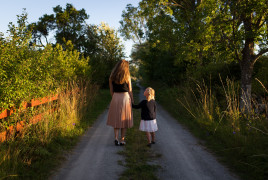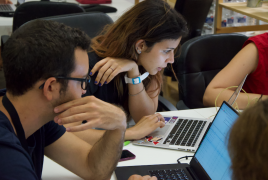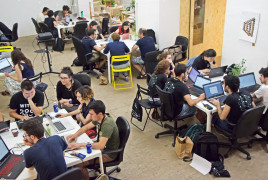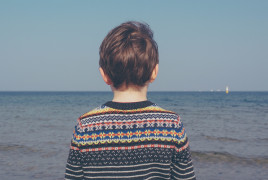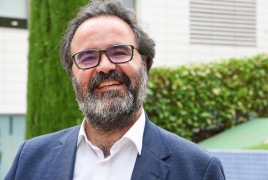What is life like for kids with rare genetic conditions?
Studies have shown that chronic and rare disease may affect the psycho-social well being of children and also their families. The physical symptoms can be very difficult to handle for a child in earlyHow to tell your child about his/her rare disease
Rare chronic diseases are common enough, affecting 6-10% of the population and have a great negative psychological and physical effect on patients and their families. Men, women but also children maySome ideas behind the technical design of Share4Rare
Having a black screen as your main tool of trade entails a number of things. One such thing is that you tend to be seen as a mere facilitator, someone whose work is limited to putting the ideas othersWhat is it like to have a sibling with a rare disease?
Taking care of a loved one who is chronically ill, having a highly disabling pathology such as a rare disease, can be as rewarding as it is difficult and stressful. This kind of diseases entail forShare4Rare criteria for meaningful patient involvement in clinical research
Patient involvement in medicines development continues to grow, as all stakeholders involved in developing accessible medicines realize they should be involving the end customer - the patient - from10 things a parent of a child affected by a rare disease wishes everyone knew
We worry we will bore our friends with our concerns over our child’s disease, and when you say “ Do you want to talk about it?” “ How are you feeling? Are you coping?” it really helps us feel like weStories of the Share4Rare hackathon: helping patients and families to face rare diseases
Share4Rare’s first RareHacks hackathon was celebrated on July 5-7th in Barcelona. In total, 45 participants were involved in building an innovative chatbot to solve the challenge regarding the limited10 things we learned from choosing chatbots as a theme for our rare disease hackathon
This weekend the Share4Rare hackathon RareHacks took place in Barcelona. During these three days, over 45 data scientists, computer scientists and clinicians joined forces in response to the needs ofDid we need to reinvent the wheel? Why Share4Rare adopted a layered approach to user interaction
It was one year ago, in the summer of 2018, when I attended my first meeting of the Consortium of the Share4Rare project. The project had been going on for a while and the foundations were laid, butLluís Montoliu: "Patients have taught me everything I know"
Lluís Montoliu is a pioneer in the introduction, use and dissemination of CRISPR technology in Spain. Author of more than a hundred scientific articles, he has been involved in the field of biomedical

